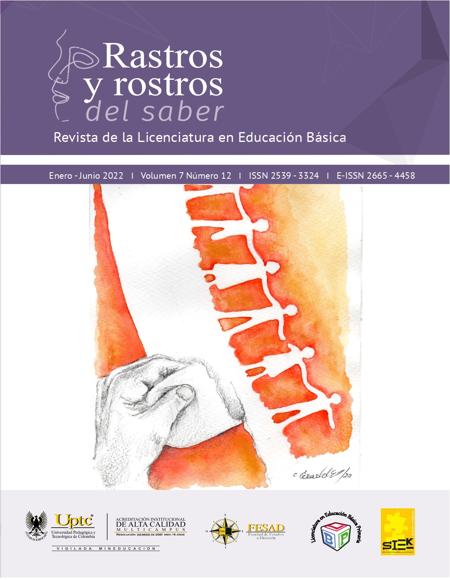Pedagogical practice in rural contexts, and the problem of reading comprehension.

Abstract
This article aims to reflect at a general level about the process of investigative pedagogical practice of deepening the Bachelor’s Degree in Basic Education with an emphasis on Mathematics, Humanities and Spanish Language, developed at the Adolfo María Jiménez educational institution in times of pandemic (according to the Ministry of National Education in resolution 385 of March 12, 2020) in a rural area of the municipality of Sotaquirá, Boyacá. Getting into the different educational, social and cultural processes and contexts that led to an education related to the new non-face-to-face school model, with the completion of learning guides in the area of Spanish language. When entering this area, reflection is made about the processes encountered and different difficulties in terms of the ability to understand a reading, with which we want to make known aspects related to the lack of reading comprehension argued by different authors, taking into account it takes into account incident factors at the educational level in each of the social contexts of the students that is taken into account; attending to the curriculum according to (law 115 of 1194) raises the pedagogical incidence that allows us to address from the real the deficiency that exists in the reading process and the lack of bases that promote the taste for reading in the different disciplines where the shortcomings. This document takes collection from the experience and observation of personal atypical practice described by the author.
Keywords
Reading comprehension, Rural, Atypical practice, Reading, Learning guides
Author Biography
Andrea Lorena Rodríguez Mateus
Licenciada en Educación Básica con énfasis en Matemáticas Humanidades y Lengua Castellana. Universidad Pedagógica y Tecnológica de Colombia.
References
- Alonso, J. & Mateos, M.M. (1985). “Comprensión lectora: modelos, entrenamiento, evolución”. Infancia y Aprendizaje, 31/32, 5-30.
- Cervantes R., Pérez J., Alanís M. (2017) Niveles de Comprensión Lectora. Sistema CONALEP: Caso específico del plantel n° 172, de ciudad Victoria, Tamaulipas, en alumnos del quinto semestre.
- Colbert, C.V. (1987). Universalización de la primaria en Colombia. El programa Escuela Nueva. En la Educación Rural en Colombia: situación, experiencias y perspectivas. Bogotá: Fundación FES.
- De Hornuez, M. (2014). Escuela nueva. sus orígenes, principios educativos. De Vega, M., Carreiras, M., Gutiérrez-Calvo, M. & Alonso-Quecuty, M.L. (1990). Lectura y Comprensión. Una Perspectiva Cognitiva. Madrid: Alianza.
- Ferreiro, Emilia (2001) Pasado y presente de los verbos leer y escribir. FCE: México.
- Gimeno, S. (2002). El currículo: una reflexión sobre la práctica. Madrid: Morata. Méndez, A. (2003). Formación de educadores y educación rural: reflexiones y propuestas desde una re conceptualización de la educación básica. Revista Digital e Rural. Educación, cultura y desarrollo rural, 10 - 23.
- Solé, Isabel 1998, “La enseñanza de la comprensión lectora”, Barcelona, España, editorial Grao, pág. 26
- Solé, I. (1996). Estrategias de comprensión de la lectura, Barcelona, Graó.
- Smith, F., Comprensión de la lectura, análisis psicolingüísticos de la lectura y su aprendizaje, México, Trillas, 1983, pág. 56
- Pérez, E. J. (2014). Comprensión lectora VS Competencia lectora: qué son y qué relación existe entre ellas. 2014, 10.
- Valencia Rodríguez, W.A. (2019). Manual de Procedimiento de Prácticas Educativas y Pedagógicas. PECEIN.001.00. Facultad Ciencias de la Educación. Universidad Católica de Oriente.